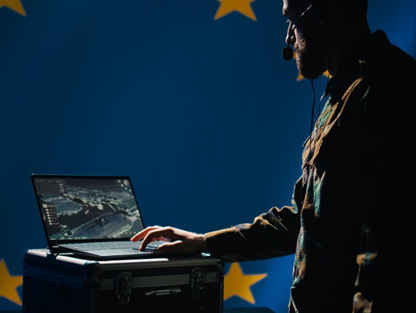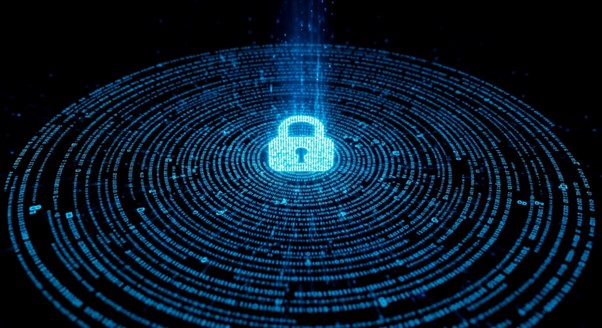
Press Release: The first Hungarian cybersecurity laboratory has been established under the IECEE CB scheme
2
min reading time
PRESS RELEASE
CCLab Ltd. has successfully completed the CBTL audit and obtained authorization as a CB Testing Laboratory (CBTL) under the international IECEE CB scheme. Based in Hungary, CCLab successfully extended its cybersecurity testing, evaluation, and certification capabilities officially on 24th May, 2024, for consumer IoT devices compliant with ETSI EN 303 645 and industrial automation and control systems specialized in IEC 62443-4-1 /4-2 standards within the IECEE CB scheme. Certificates issued under the CB scheme are currently accepted in over 50 countries.
CCLab Ltd., in collaboration with QIMA Germany, is one of the first international National Certification Bodies (NCB) and CB Testing Laboratories (CBTL) to receive accreditation under the IECEE (International Electrotechnical Commission System for Conformity Testing and Certification of Electrical Equipment) CB (Certification Bodies) scheme for ETSI EN 303 645 standard - “Cybersecurity for Consumer IoT devices (CIoT)”- as well as the IEC 62443-4-1 and 4-2 standards for industrial automation and control systems. The IECEE CB scheme now officially recognizes CCLab to conduct tests according to the relevant standards for CIoT products or industrial control systems, and to issue CB certificates and test reports on compliance with the standards above. CB Scheme is the largest certification system for electrical devices, where the certificates are accepted in more than 50 member countries.
ETSI EN 303 645 is a globally recognized standard that defines critical cybersecurity requirements for consumer IoT devices and serves as the basis for developing IoT certification schemes in various regions.
Compliance with the standard involves the evaluation of 33 provisions during the device’s cybersecurity assessment by the testing laboratory, based on the 3 documents specified in the standard. These documents include the Implementation of eXtra Information for Testing (IXIT), Implementation Conformance Statement (ICS), and Device Under Test (DUT), where the latter provides detailed information for the tested device’s identification.
IEC 62443 is an international series of standards that regulates the cybersecurity of industrial automation and control systems (OT, Operational Technology). Sub-parts 62443-4-1 and 62443-4-2 of IEC 62443, collectively define technical guidelines for improving the cybersecurity of industrial control systems.
Part 4-2 of the IEC 62443 contains the cybersecurity requirements for control systems and components, while Part 4-1 specifies the requirements for the secure development life cycle of these products. The standard family helps protect industrial systems by providing measures for defending against cybersecurity threats and ensuring compliance.
The IECEE CB scheme provides a global framework for mutual acceptance of test reports and certificates regarding the safety of electrical and electronic components, equipment, and products at an international level. The scheme facilitates the entry of products with CB certification and test reports into global markets, significantly reducing manufacturers’ costs and easing international trade.
Through inclusion in the CB scheme, CCLab has further expanded its service portfolio for cybersecurity evaluation and certification of the aforementioned categories, offering even greater value to its clients. Cybersecurity is a horizontal requirement category, like EMC, within the CB scheme that can be applied to every connected device. Thanks to services according to ETSI EN 303 645 and IEC 62443-4-1/4-2 standards, the tested products can get internationally recognized certification, guaranteeing compliance with the latest cybersecurity requirements for protecting sensitive data, users and the environment.
Related downloadables


ETSI EN 303 645 Guide training course
ETSI EN 303 645 Guide training course
Your key to unlocking simplicity in ETSI 303 645 compliance


ETSI EN 303 645 infographics for Consumer IoT devices
ETSI EN 303 645 infographics for Consumer IoT devices
Download our ETSI EN 303 635 infographics today and learn about the product certification process for this consumer IoT device cybersecurity standard.
Related news

Understanding EUCC Assurance Levels: What “Substantial” and “High” Really Mean for ICT Security
This article provides a strategic guide to the new EUCC assurance levels, explaining what "Substantial" and "High" certifications actually mean for your market access. It demystifies the critical shift from simple EAL numbers to risk-based vulnerability analysis (AVA_VAN), detailing exactly which products require advanced penetration testing versus basic surveys. You will learn how to map your device to the correct assurance category, navigate the new mandatory lifecycle and patching requirements, and avoid the costly trap of over-engineering your compliance strategy.
5
min reading time

Implementing EUCC: What High-Assurance Certification Requires Beyond Traditional Common Criteria Approaches
This is a comprehensive overview of the transition to EUCC (European Common Criteria-based cybersecurity certification scheme). It effectively highlights the shift from the old, fragmented SOG-IS approach to a unified, risk-based framework under the Cybersecurity Act.
8
min reading time

Is Your Radio Device a "High-Risk" AI System? Navigating the RED and AI Act Overlap
The newly enforced AI Act significantly shifts the regulatory landscape for hardware manufacturers by explicitly listing the Radio Equipment Directive (RED) as critical safety legislation. If a radio device uses AI for mandatory functions like network protection or data privacy, it will likely be classified as a "High-Risk AI System" under these new rules. This classification creates a "Double Lock" on compliance, requiring manufacturers to integrate AI-specific audits into their existing 2025 RED conformity assessments. Failing to plan for this overlap today is a strategic error that could force a total product redesign by 2027 when the regulations fully converge. By adopting an integrated compliance strategy now, manufacturers can ensure long-term market access and avoid the costs of redundant testing.
9
min reading time
